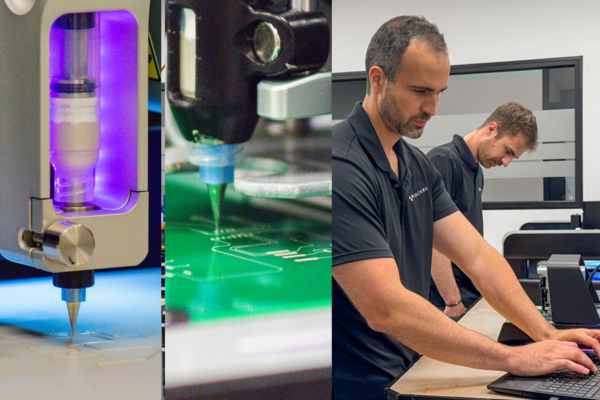
Students build online dashboard to track COVID-19 antibody studies
SeroTracker could inform strategies for reopening economies in Canada and around the world

SeroTracker could inform strategies for reopening economies in Canada and around the world
By Brian Caldwell Faculty of EngineeringFive engineering students at the University of Waterloo helped build an online dashboard that tracks and synthesizes COVID-19 antibody studies from around the world.
SeroTracker visualizes antibody test results on a map to show how many people in a given area might have been exposed to the novel coronavirus, which is technically known as SARS-CoV-2.
That information could help inform strategies for reopening economies because positive antibody tests may indicate immunity.
“Keeping a close eye on which populations have which levels of antibodies will be increasingly important to make evidence-based decisions,” says Austin Atmaja, a fourth-year biomedical engineering student.
The public website, believed to be the most comprehensive tool of its kind, was built in little more than a month by an interdisciplinary team of 20 undergraduate students, graduate researchers and medical students.
Its recent release was welcomed as “great news” in a tweet by Dr. Theresa Tam, the chief public health officer of Canada.
Members of the SeroTracker team, who have expertise in health sciences, software engineering, economics, data science and public policy, partnered with the COVID-19 Immunity Task Force, a group of public health and infectious disease experts funded by the Canadian government.
In addition to Waterloo, the contributors - all of them Canadians - represent the University of Toronto, McGill University, the University of Calgary, Oxford University and Harvard University.
“This is an incredibly talented team that has been a joy to work with,” says Nathan Duarte, also a fourth-year biomedical engineering student.
The students from Waterloo got involved via personal and professional networks, and have each contributed several hours of work a day on software development, product management and research that involves collecting, screening and analyzing data.
As time goes on, they expect the results of more and more antibody studies to be added as governments and public health officials better understand how to use the results to safely ease restrictions imposed during the pandemic.
A future phase of the work will involve development of a detailed dashboard for a million antibody tests the immunity task force plans to administer in Canada over the next two years.
“The Canadian dashboard will enable us to answer specific questions around how many Canadians have been exposed to the virus and how immunity to SARS-CoV-2 works,” says Jordan Van Wyk, a fourth-year nanotechnology engineering student.
In addition to presenting results by country and area, the interactive dashboard features filters to enable searching by variables including test type, age, gender and population subgroups, such as health-care workers.
“As we’ve seen this dashboard take off and evolve, it’s clear it has the potential to have a great impact,” says Simona Rocco, a third-year biomedical engineering student. “It will hopefully help inform and speed up our return to normalcy.”
Although there is a lot of work to be done and crucial questions still to be answered - such as whether a positive antibody test actually implies immunity - the students are pleased they were able to so quickly build a tool with potential long-term importance.
“The skills we’ve acquired on co-op terms and in classes definitely helped us develop this dashboard in such a short period of time,” says Abel Joseph, a third-year biomedical engineering student. “It’s our hope that this tool will potentially help guide decisions as we overcome the effects of COVID-19.”

Read more
Here are the people and events behind some of this year’s most compelling Waterloo stories

Read more
Waterloo Engineering alum wears her iron ring proudly while building her career in quantum tech in Germany

Read more
Voltera prints electronics making prototyping faster and more affordable — accelerating research to market-ready solutions
Read
Engineering stories
Visit
Waterloo Engineering home
Contact
Waterloo Engineering
The University of Waterloo acknowledges that much of our work takes place on the traditional territory of the Neutral, Anishinaabeg, and Haudenosaunee peoples. Our main campus is situated on the Haldimand Tract, the land granted to the Six Nations that includes six miles on each side of the Grand River. Our active work toward reconciliation takes place across our campuses through research, learning, teaching, and community building, and is co-ordinated within the Office of Indigenous Relations.